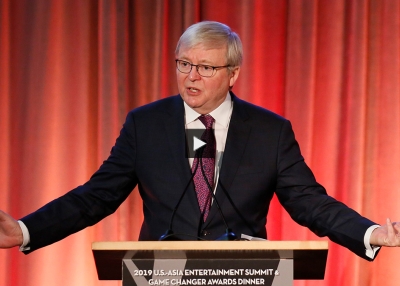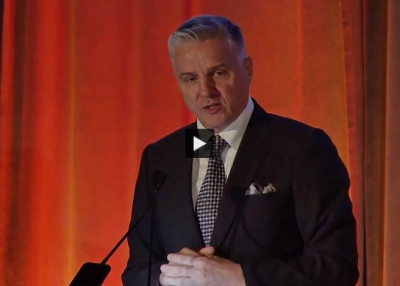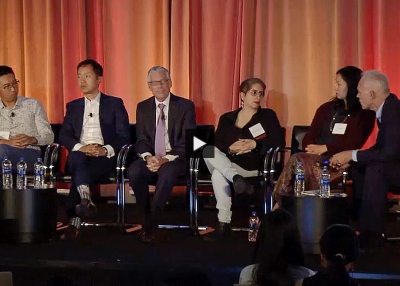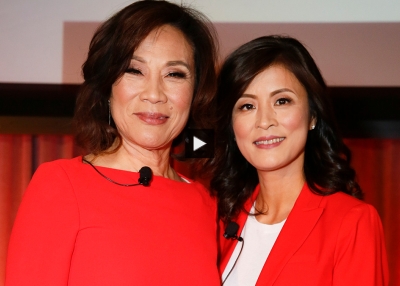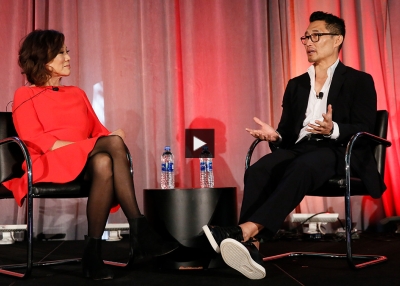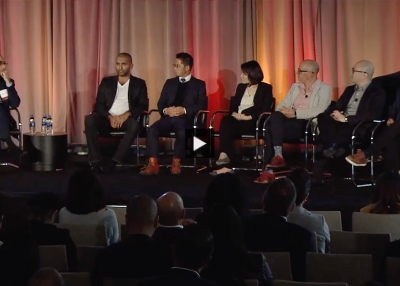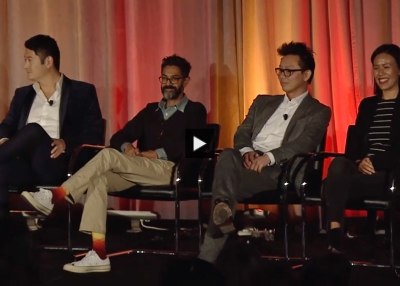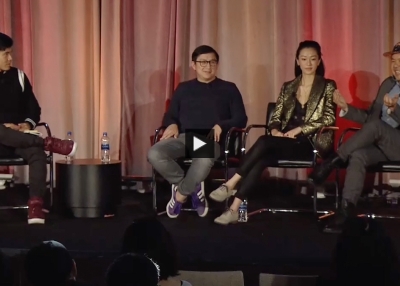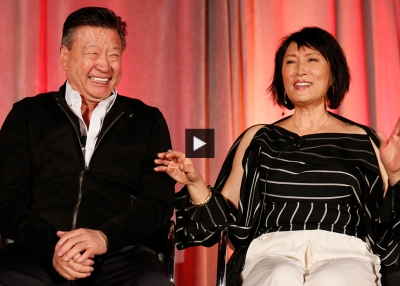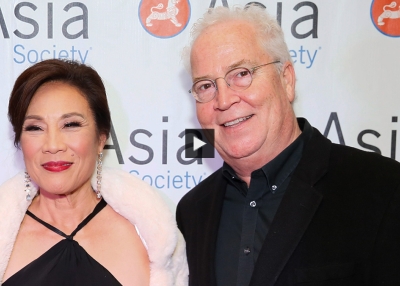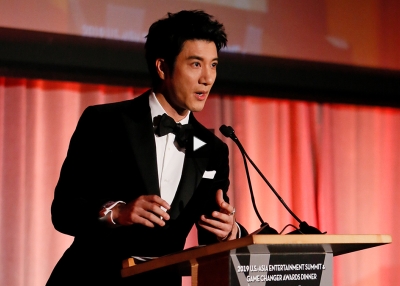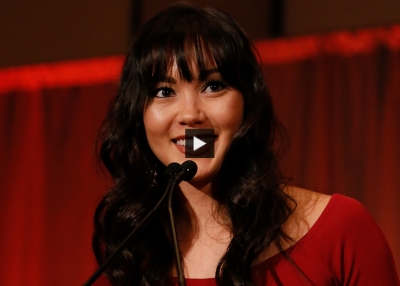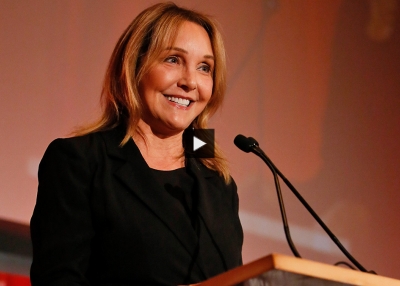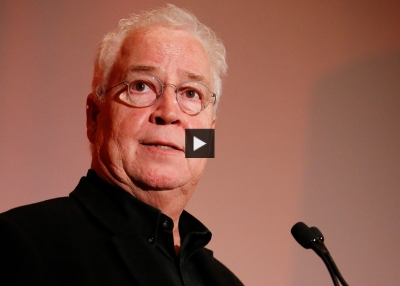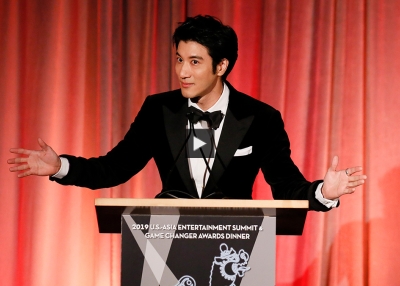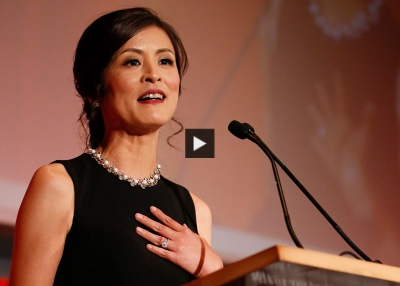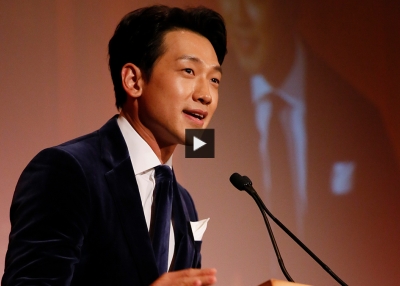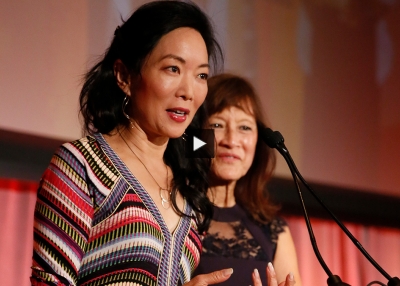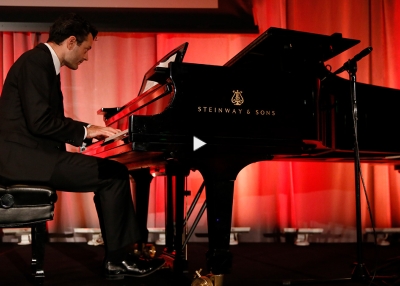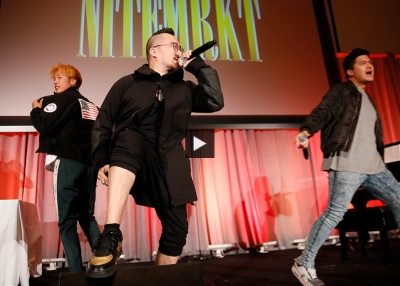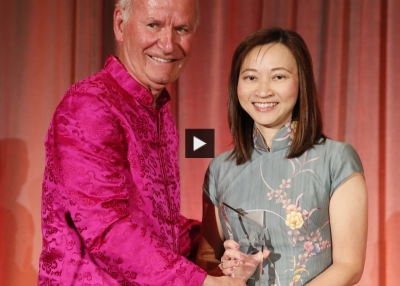Photos & Videos: 2019 U.S.-Asia Entertainment Summit & Game Changer Awards Dinner
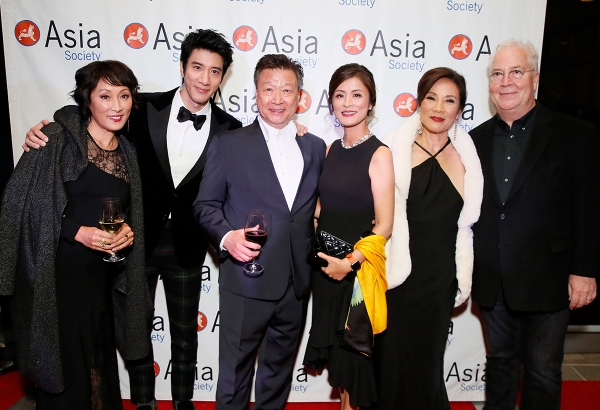
From left, Diana Lin, Wang Leehom, Tzi Ma, Wei Zhang, Janet Yang and Bob Weis during the Asia Society 2019 U.S.-Asia Entertainment Summit and Game Changer Awards Dinner at the Skirball Cultural Center on Nov. 5, 2019, in Los Angeles, California. (Ryan Miller/Capture Imaging)
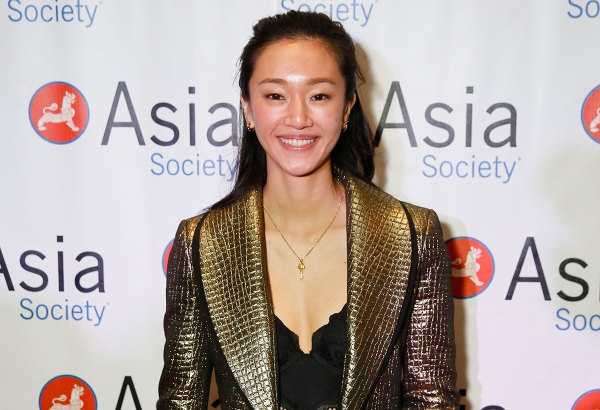
Tiffany Chu during the Asia Society 2019 U.S.-Asia Entertainment Summit and Game Changer Awards Dinner at the Skirball Cultural Center on Nov. 5, 2019, in Los Angeles, California. (Ryan Miller/Capture Imaging)
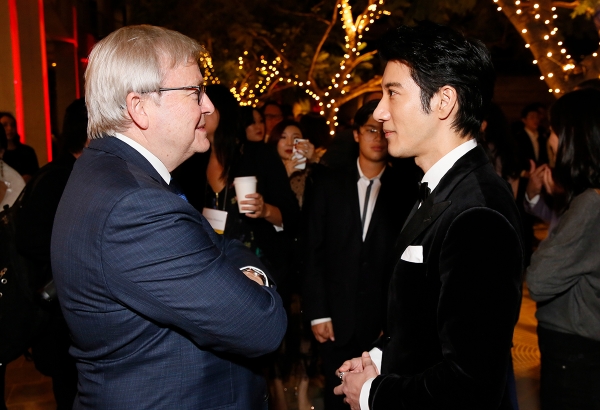
From left, Kevin Rudd and Wang Leehom during the Asia Society 2019 U.S.-Asia Entertainment Summit and Game Changer Awards Dinner at the Skirball Cultural Center on Nov. 5, 2019, in Los Angeles, California. (Ryan Miller/Capture Imaging)
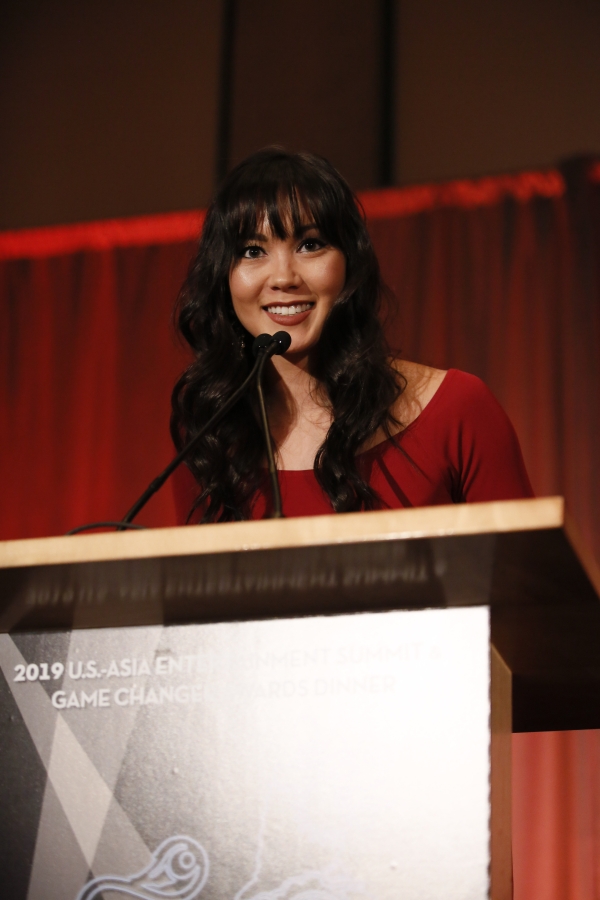
Sabrina Imamura, Emcee, Professional Dancer, ensemble with Hamiltion: An American Musical (Photo by Ryan Miller/Capture Imaging)
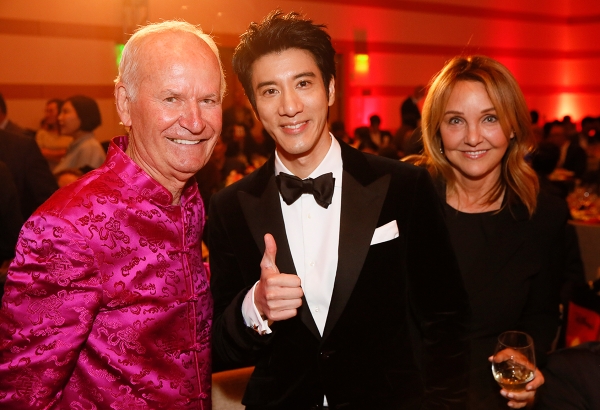
From left, Richard Drobnick, WANG Leehom and Ambassador Josette Sheeran during the Asia Society 2019 U.S.-Asia Entertainment Summit and Game Changer Awards Dinner at the Skirball Cultural Center on Nov. 5, 2019, in Los Angeles, California. (Ryan Miller/Capture Imaging)
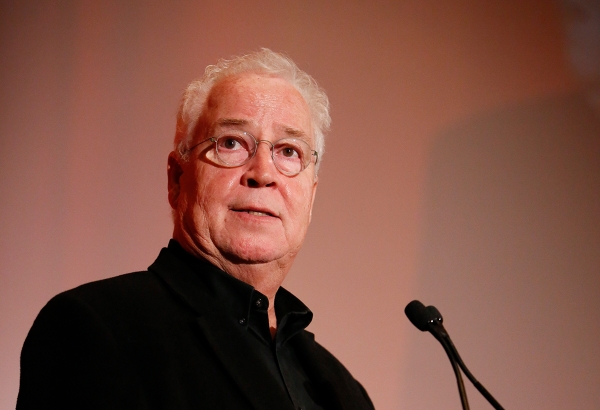
Bob Weis during the Asia Society 2019 U.S.-Asia Entertainment Summit and Game Changer Awards Dinner at the Skirball Cultural Center on Nov. 5, 2019, in Los Angeles, California. (Ryan Miller/Capture Imaging)
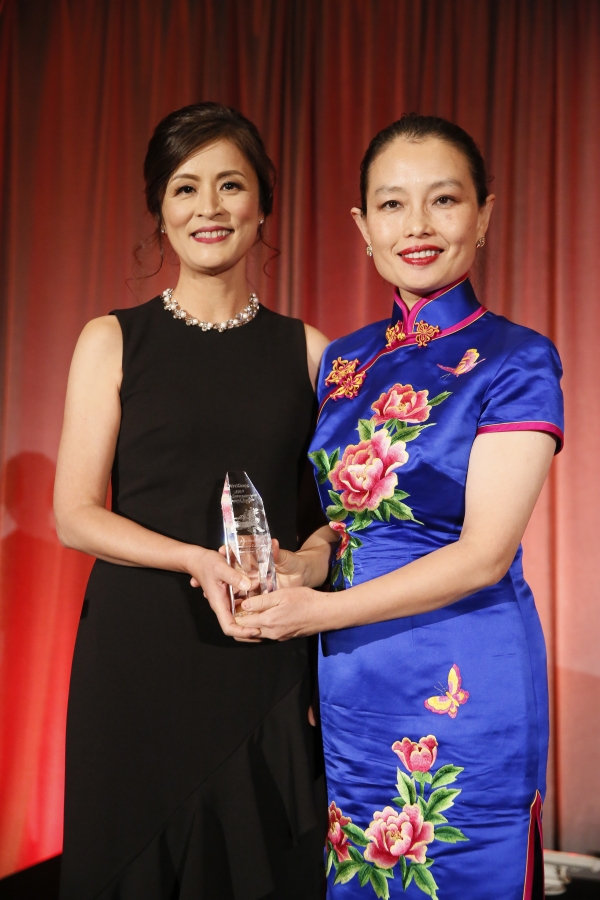
From left, Wei Zhang and Jin Wang during the Asia Society 2019 U.S.-Asia Entertainment Summit and Game Changer Awards Dinner at the Skirball Cultural Center on Nov. 5, 2019, in Los Angeles, California. (Photo by Ryan Miller/Capture Imaging)
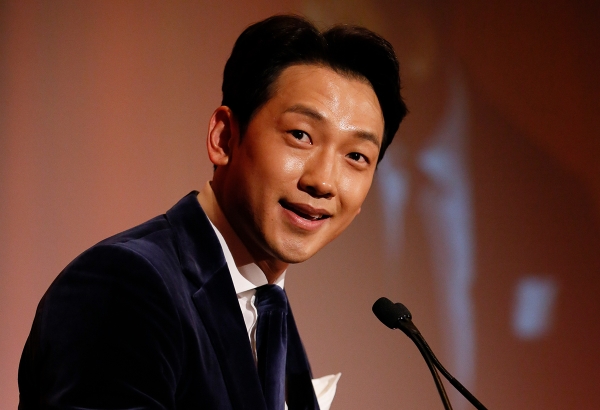
Korean popstar Rain (Jung Ji-Hoon) during the Asia Society 2019 U.S.-Asia Entertainment Summit and Game Changer Awards Dinner at the Skirball Cultural Center on Nov. 5, 2019, in Los Angeles, California. (Ryan Miller/Capture Imaging)
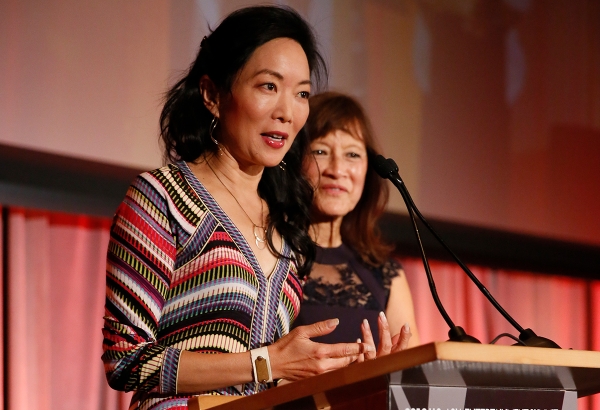
Directors Jessica Yu and Freida Lee Mock during the Asia Society 2019 U.S.-Asia Entertainment Summit and Game Changer Awards Dinner at the Skirball Cultural Center on Nov. 5, 2019, in Los Angeles, California. (Ryan Miller/Capture Imaging)

Katherine Ho during the Asia Society 2019 U.S.-Asia Entertainment Summit and Game Changer Awards Dinner at the Skirball Cultural Center on Nov. 5, 2019, in Los Angeles, California. (Ryan Miller/Capture Imaging)
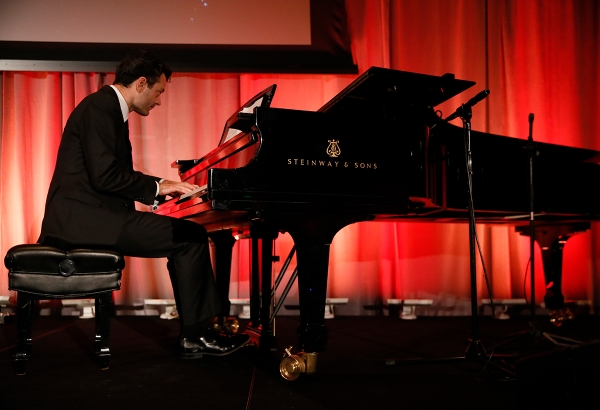
Steven Vanhauwaert during the Asia Society 2019 U.S.-Asia Entertainment Summit and Game Changer Awards Dinner at the Skirball Cultural Center on Nov. 5, 2019, in Los Angeles, California. (Ryan Miller/Capture Imaging)
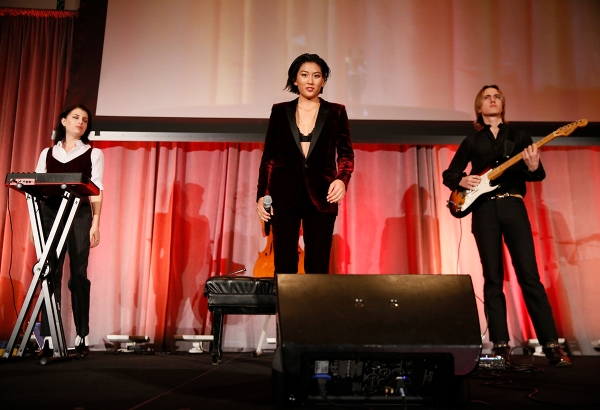
Sofya Wang performs during the Asia Society 2019 U.S.-Asia Entertainment Summit and Game Changer Awards Dinner at the Skirball Cultural Center on Nov. 5, 2019, in Los Angeles, California. (Ryan Miller/Capture Imaging)
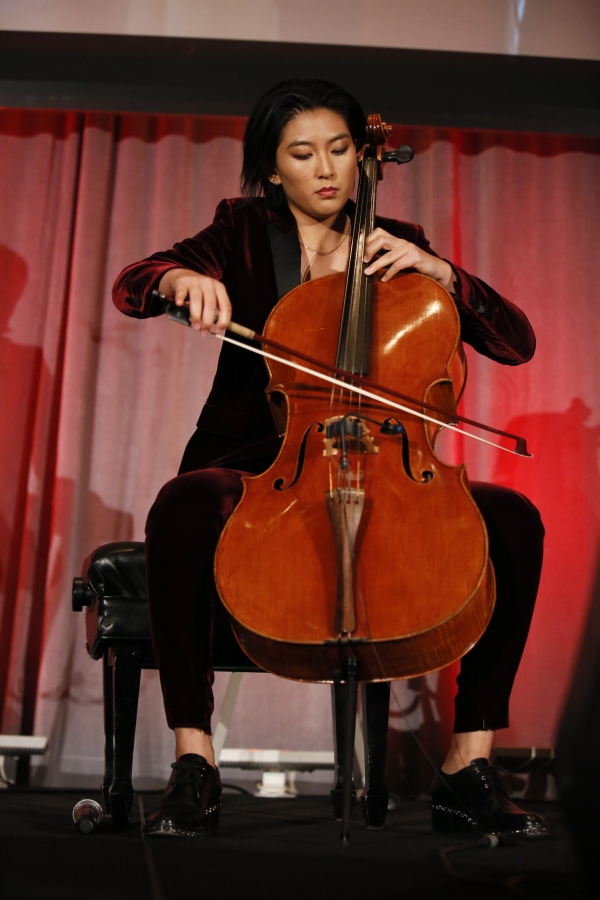
Sofya Wang, Singer (Photo by Ryan Miller/Capture Imaging)
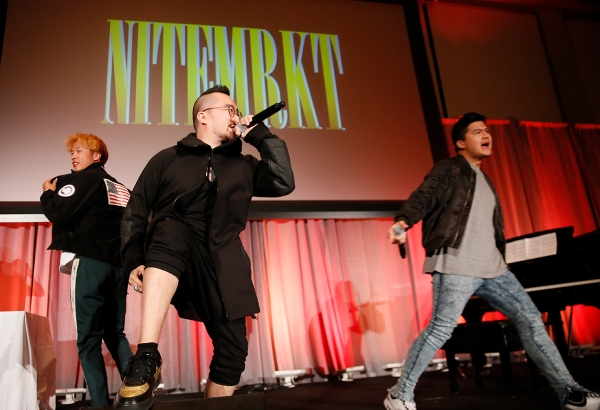
The band Nitemrkt during the Asia Society 2019 U.S.-Asia Entertainment Summit and Game Changer Awards Dinner at the Skirball Cultural Center on Nov. 5, 2019, in Los Angeles, California. (Ryan Miller/Capture Imaging)
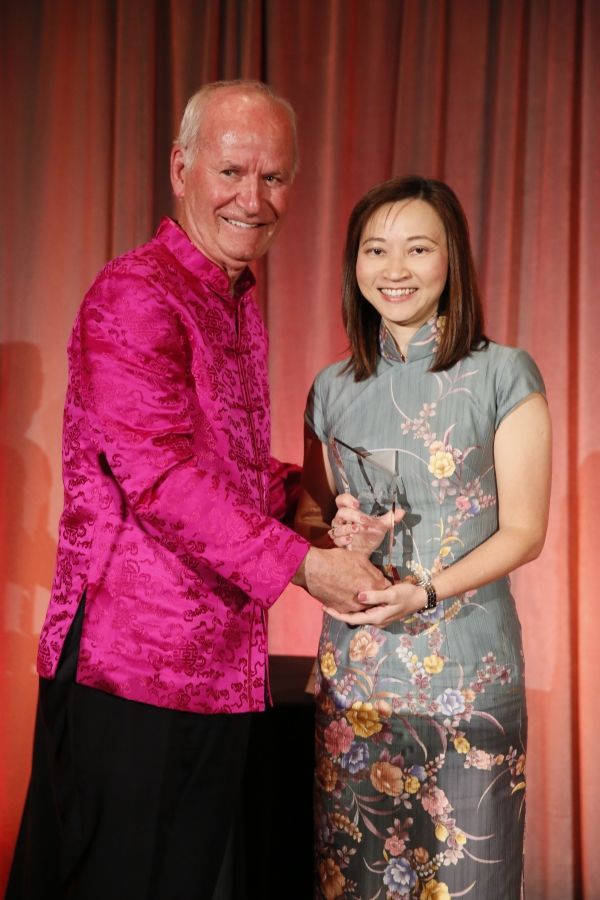
From left to right, Richard Drobnick, Chairman of Asia Society Southern California, Tan Shulin, CEO of OUE Commercial REIT.
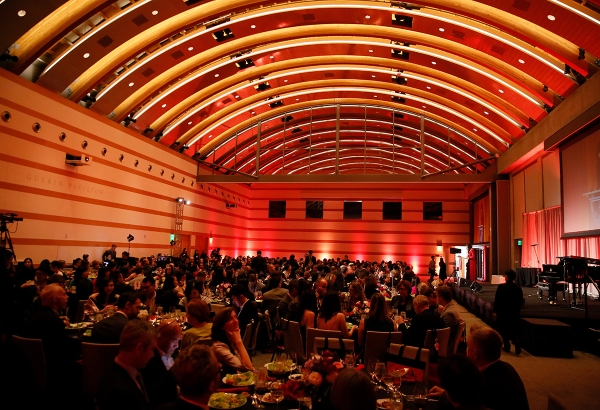
The dinner during the Asia Society 2019 U.S.-Asia Entertainment Summit and Game Changer Awards Dinner at the Skirball Cultural Center on Nov. 5, 2019, in Los Angeles, California. (Ryan Miller/Capture Imaging)
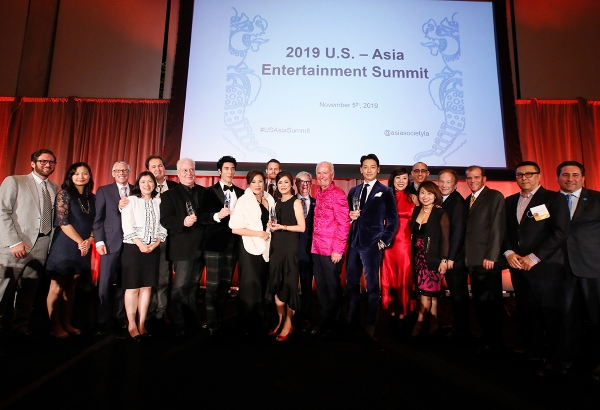
The award winners and speakers during the Asia Society 2019 U.S.-Asia Entertainment Summit and Game Changer Awards Dinner at the Skirball Cultural Center on Nov. 5, 2019, in Los Angeles, California. (Ryan Miller/Capture Imaging)
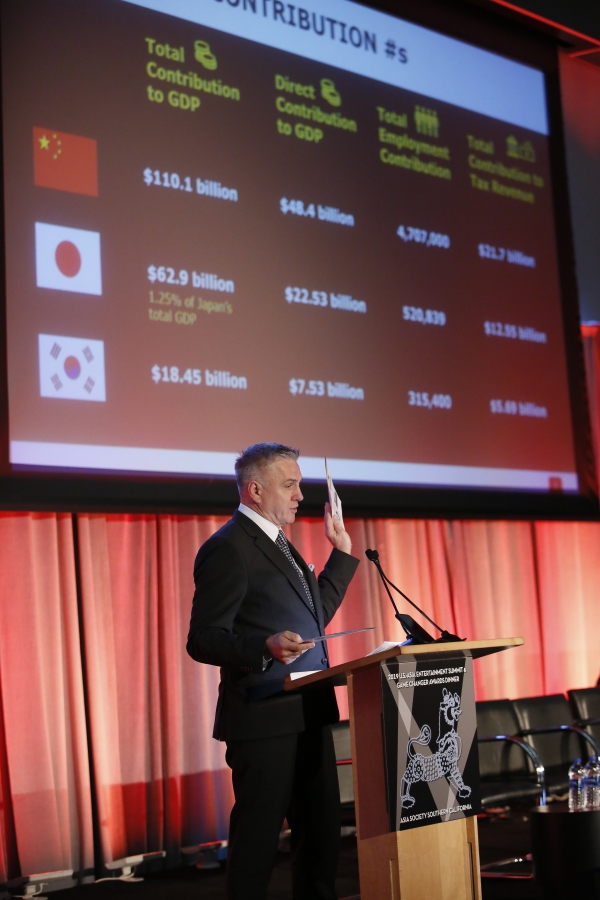
President & Managing Director of Motion Picture Association, Michael C. Ellis, delivers the opening keynote address at the 2019 U.S.-Asia Entertainment Summit and unveils new research on the growth of the Asian film market in theaters.
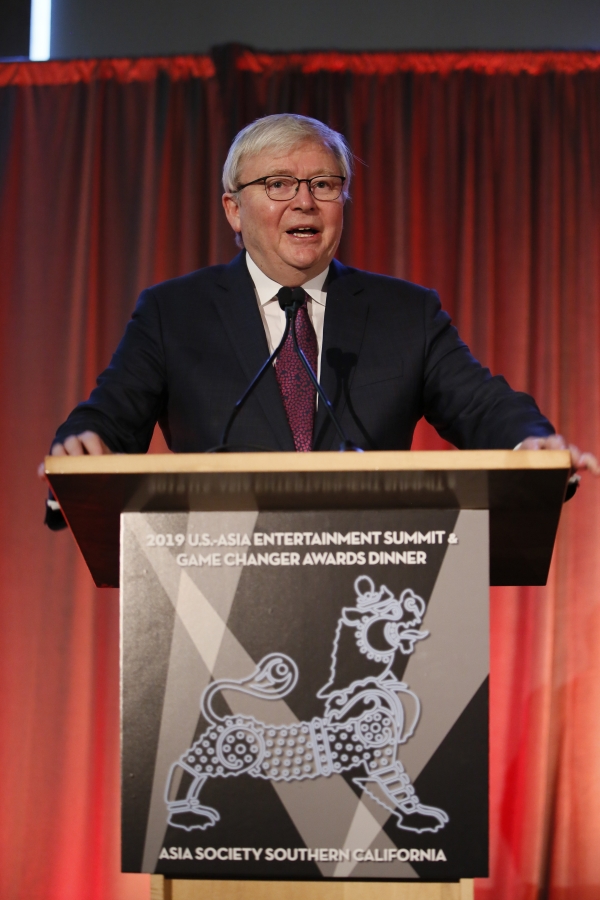
The Honorable Kevin Rudd during the Asia Society 2019 U.S.-Asia Entertainment Summit and Game Changer Awards Dinner at the Skirball Cultural Center on Nov. 5, 2019, in Los Angeles, California. (Photo by Ryan Miller/Capture Imaging)
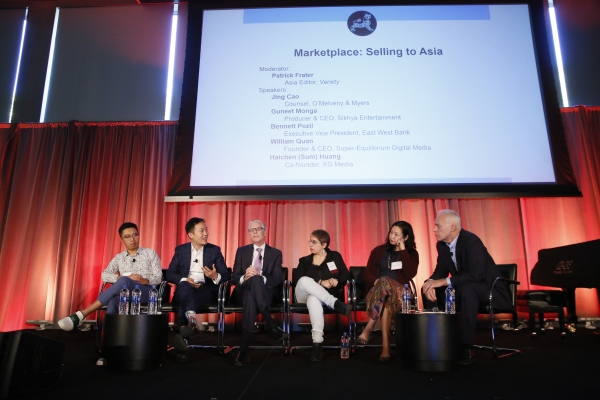
The opening panel at the 2019 U.S.-Asia Entertainment Summit discussed the challenges and opportunities of accessing the world’s largest markets. Patrick Frater, Asia Editor from Variety, moderates a discussion with Counsel of O’Melveny & Myers Jing Cao, Producer & CEO of Sikhya Entertainment Guneet Monga, East West Bank Executive Vice President Bennett Pozil, Founder & CEO of Super Equilibrium Digital Media William Quan, and Co-Founder of XG Media Haichen (Sum) Huang.
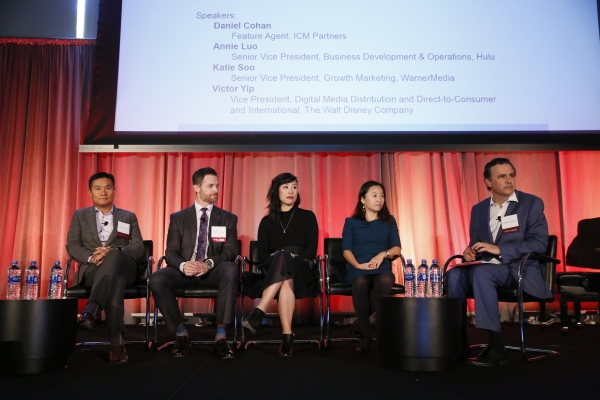
A highly anticipated panel at The 2019 U.S.-Asia Entertainment Summit discussed the business implications for streaming companies of needing to curate a diversity of content. Partner and Leader of Manatt Entertainment Group, Manatt, Phelps & Phillips Lindsay Conner moderates a discussion with Feature Agent at ICM Partners Daniel Cohan, Senior Vice President of Business Development & Operations at Hulu Annie Luo, Senior Vice President of Growth Marketing at Warner Media Katie Soo, Vice President of Digital Media Distribution and Direct-to-Consumer and International at The Walt Disney Company Victor Yip.
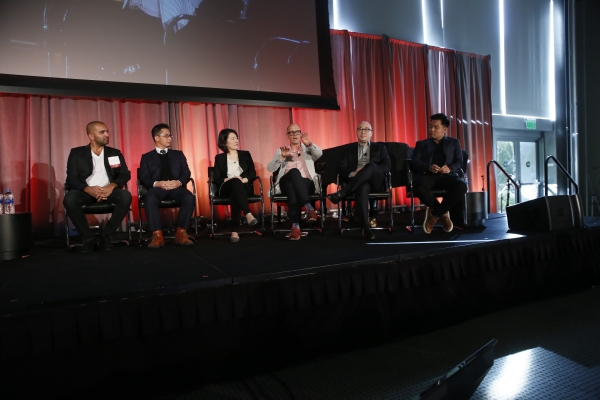
The 2019 U.S.-Asia Entertainment features a panel on how storytelling can cross borders in both directions including through remakes, sequels, and co-productions. Chair of Asia & Europe Entertainment and Media Practice at Paul Hastings LLP Stephen Saltzman moderates a discussion with Head of U.S. Films at CJ Entertainment Francis Chung, Manager of Production and Development at Toho International, Yoshiko Fukuda, Vice President of Amuse Group USA Yasumasa Kutami, Vice President at Warner Bros Douglas Montgomery, CEO of Extraordinary Entertainment Daljit DJ Parmar and Head of International Business Development, Tencent Pictures Rob Ree.
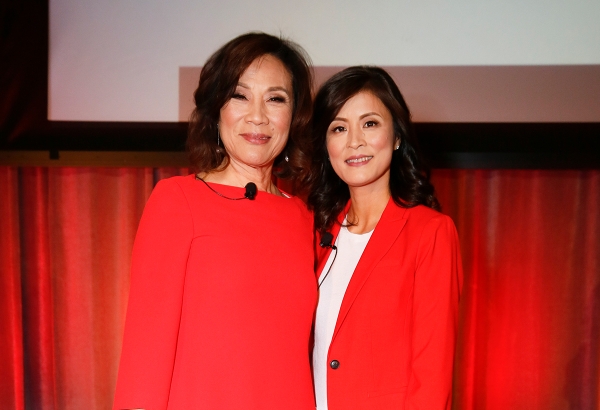
From left, Janet Yang and Wee Zhang during the Asia Society 2019 U.S.-Asia Entertainment Summit and Game Changer Awards Dinner at the Skirball Cultural Center on Nov. 5, 2019, in Los Angeles, California. (Ryan Miller/Capture Imaging)
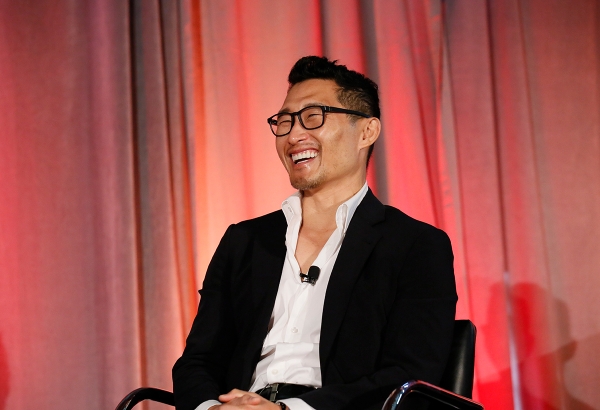
Daniel Dae Kim during the Asia Society 2019 U.S.-Asia Entertainment Summit and Game Changer Awards Dinner at the Skirball Cultural Center on Nov. 5, 2019, in Los Angeles, California. (Ryan Miller/Capture Imaging)
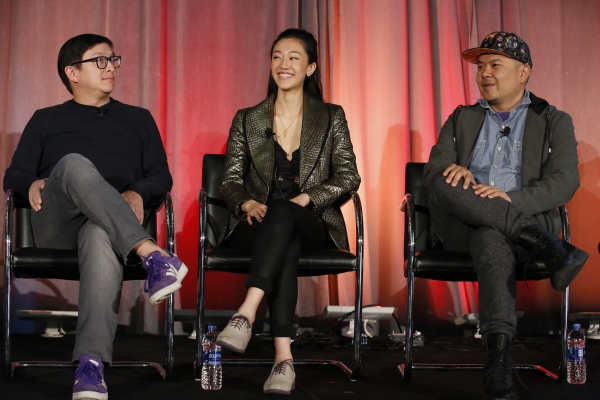
Bing Chen, Chairman & Co-Founder, Gold House moderates a discussion with Kevin Lin, Co-Founder and former COO of Twitch, Tiffany Chu, Actor, (Ms. Purple, Artificial) and Bernie Su, Executive Producer and Co-creator of Artificial at the 2019 U.S.-Asia Entertainment Summit.
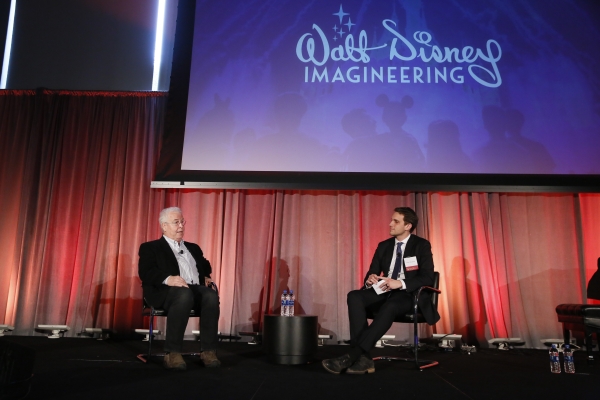
The 2019 U.S.-Asia Entertainment features Bob Weis, President, Walt Disney Imagineering, about how he guides the creative forces behind the magic in the themed parks. The fireside chat is moderated by Matt Sheehan, Fellow, The Paulson Institute’s MacroPolo; Author of The Transpacific Experiment.
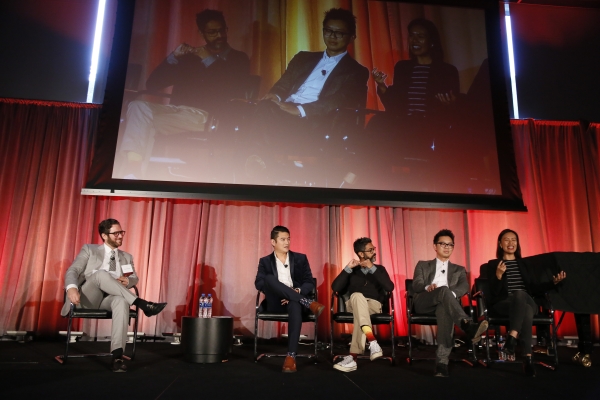
The 2019 U.S.-Asia Entertainment features a discussion with Janice Chua, VP of International Development & Production at Imagine Entertainment & Television, Hieu Ho, Partner of Imminent Collision, Sanjay Sharma, Founder & CEO of Marginal Mediaworks, and Mark Zee, Director of Global Digital Licensing at The Walt Disney Company. The panel is moderated by Max Michael, Head of Asian Business Development at United Talent Agency.
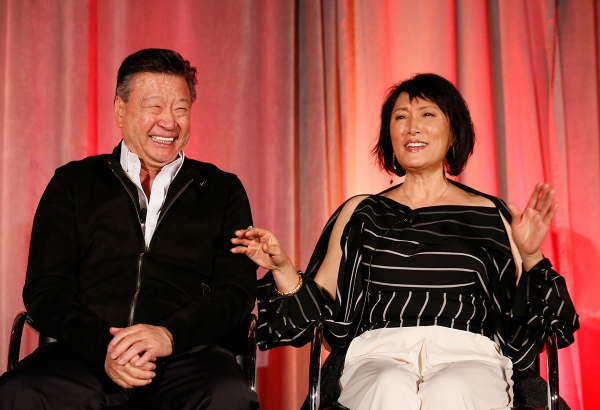
From left, Tzi Ma and Diana Lin during the Asia Society 2019 U.S.-Asia Entertainment Summit and Game Changer Awards Dinner at the Skirball Cultural Center on Nov. 5, 2019, in Los Angeles, California. (Ryan Miller/Capture Imaging)
Click here to view the full photo gallery of the summit and dinner.
Click here to download the program book.
EVENT RECAP DESCRIPTION
Boldface names and behind-the-scenes industry leaders gathered for Asia Society's U.S.-Asia Entertainment Summit in Los Angeles on Tuesday. This was the 10th iteration of the high-level conference, and the first under a new banner; previously the event had been known as the U.S.-China Film Summit. The change reflects a proliferation of platforms beyond film, and the growth in media collaborations with other Asian nations — Korea, Japan, India and others.
A pair of keynote speeches highlighted current tensions between the U.S. and China, and how those issues are affecting the media and entertainment landscape. Asia Society Policy Institute President Kevin Rudd called on Hollywood for help in building cultural bridges between the two nations, acknowledging that politicians and business leaders were having limited success. "Geopolitically, the U.S.-China relationship is increasingly fractious," Rudd said. "Apart from the obvious continuing flashpoints in the South China Sea, unresolved issues over Taiwan and unfolding protest movements in Hong Kong, there is a wider geopolitical competition between China and the United States."
Motion Picture Association President and Managing Director Michael C. Ellis called the U.S.-China tensions "the elephant in the room," though he noted that many collaborations had flourished — and that in 2018 eight American films had grossed more at the box office in China than in the U.S. For his part, Rudd sounded an optimistic note, suggesting that mutual self-interest would bring Xi Jinping and Donald Trump to "phase one" of a U.S.-China trade deal by month's end, and a more comprehensive agreement in 2020. "It's in the deep interest of these two leaders," said Rudd, "to put this thing to bed."
Summit attendees spanned the globe, and represented all corners of the media industry — agents, producers, actors, writers, financiers, and more — all interested in U.S.-Asia co-productions. Star power came from Korean American actor and producer Daniel Dae Kim, whose breakthrough role came in Lost and who now runs the content creation company 3AD Media; award-winning actors Tzi Ma and Diana Lin, stars of Lulu Wang's The Farewell; and the Chinese American singer/songwriter, producer, actor, and director Wang Leehom. Industry leaders Wei Zhang (President, Alibaba Pictures) and Bob Weis (President, Disney Imagineering) were also on hand. Kim was among many to highlight a recent sea change in Asian representation on screen. "There's a lot more agency," he said. "It's new territory. A brave new world."
Wang opened his afternoon address with a provocative question: Why, he asked, should a screen star risk speaking publicly at such an occasion, given reprisals that might come from a studio or funder? "It's the season of xenophobia," he said. "And the spouting whale gets harpooned." Like many other speakers, Wang argued that film and music held the potential for improving tensions, and building understanding between Americans and Asians on both sides of the Pacific.
Throughout the day, speakers highlighted the power and potential of U.S.-Asia media collaborations. The Asia Pacific is now the top box office region in the world, with eight of the top 20 global markets; 23 new screens open in China every day, and China's GDP gets a $100 million annual boost from its film industry. Alibaba's Zhang called The Martian "a perfect co-production," in no small part because China's space program helps rescue the film's lead character; and in a relatively new phenomenon, more Asian content creators are succeeding at selling their work to Hollywood. Francis Chung, head of U.S. Films for Korea's CJ Entertainment, highlighted a partnership with Universal to remake its film Extreme Job. "We identified what's going to work, and we go to partners with a firm idea on how this should be remade," Chung said. "We knew the film would do well in the U.S. … and by the time the Korean movie was released, we had already partnered with Universal for the remake."
The conference and an evening Entertainment Game Changer Awards ceremony were held at the Skirball Cultural Center in Los Angeles. Honorees at the evening event included Zhang, Wang, Weis, and the Korean singer/songwriter Jung Ji-Hoon, also known as The Rain.
